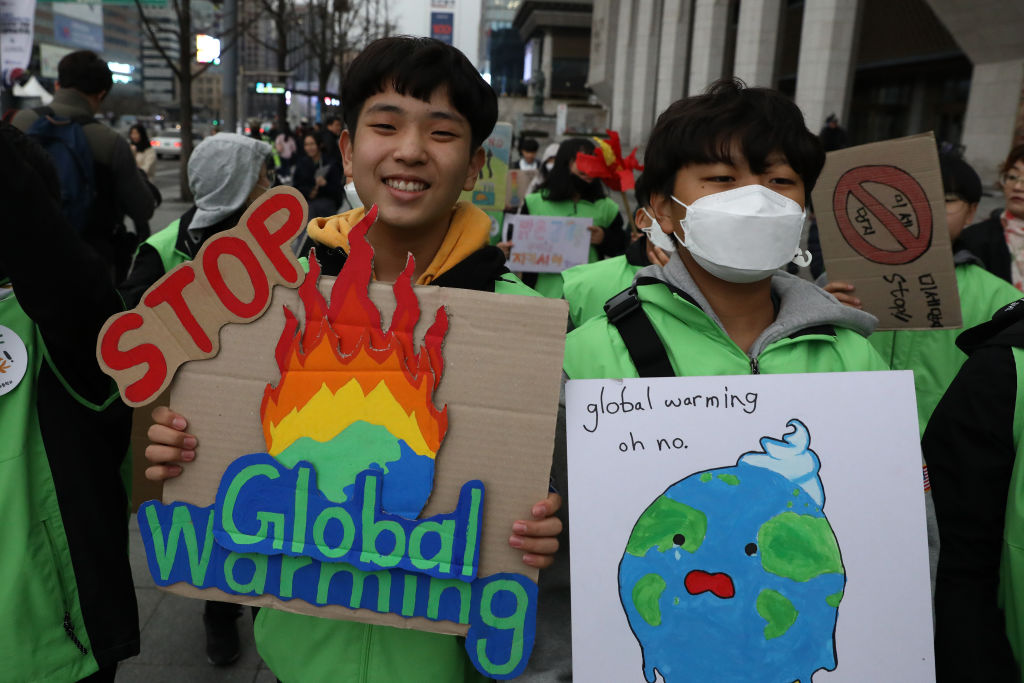
High school senior Kim Yujin and 29 other young activists in South Korea are suing the government, claiming that parliament’s recent revision to the nation’s climate-change law doesn’t go far enough to protect their future.
The students’ complaint to the Constitutional Court in Seoul argues that their fundamental rights, including the right to live and a clean environment, have been infringed by the nation’s climate-change law, which they say fails to set specific targets to prevent global temperatures from rising.
“We want drastic change,” said Kim in an interview. “We did what we could to make changes by meeting government officials,” she said. “It wasn’t enough to make the political leaders implement better policies.”
South Korea’s Framework Act on Low Carbon, Green Growth, amended in December, pledges to reduce annual nationwide greenhouse gas emissions to 536 million tons by 2030, a 24.4% drop from 2017. The youth group argues that this target is far below what’s required to keep global warming below 2 degrees Celsius — the target endorsed by almost 200 countries in the 2015 Paris agreement.
Anyone in Korea whose constitutional rights have been violated by the government may file a constitutional complaint, and the court ruling is binding on all state agencies and local governments.
“There are sufficient grounds for the court to accept our complaint,” said Youn Sejong, a lawyer who’s handling the case. If the complaint succeeds, “there’ll be a binding force for the lawmakers to come up with more specific targets.”
Youn said the court is more likely to rule that the complaint is “unconformable to the constitution,” than unconstitutional, as that would give the National Assembly time to revise the law while having the current legislation remain in effect.
The students argue that, even if the current Korean target is met, global temperatures would rise by 3 degrees or more by the mid-to-late 21st century, the group said. The legislation has been amended twice since it took effect in 2010, but the emission reduction targets have been revised down each time.
The activism by the Korean teenagers reflects the growing global youth environmental movement, championed by Greta Thunberg and others, who are putting pressure on policymakers and corporations to tackle climate change.
Youth climate groups from India to New Zealand have sought to file lawsuits against governments. Colombia’s Supreme Court ruled in favor of young people in 2018 and ordered authorities to make and carry out action plans to address deforestation in the Amazon.
The Ninth Circuit court in the U.S. concluded claims from young plaintiffs that federal policies enabled and accelerated global temperature rise should be raised with the executive and legislative branches of government, instead of the court.
More Must-Reads from TIME
- Cybersecurity Experts Are Sounding the Alarm on DOGE
- Meet the 2025 Women of the Year
- The Harsh Truth About Disability Inclusion
- Why Do More Young Adults Have Cancer?
- Colman Domingo Leads With Radical Love
- How to Get Better at Doing Things Alone
- Michelle Zauner Stares Down the Darkness
Contact us at letters@time.com